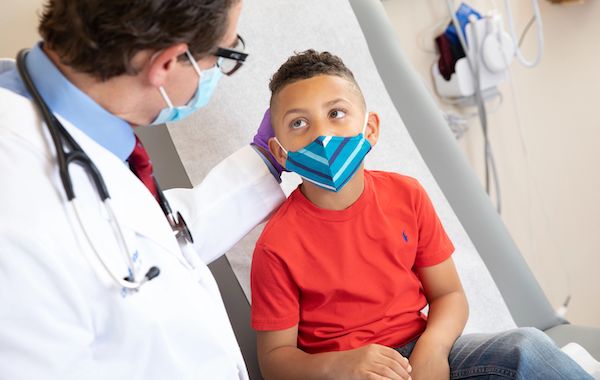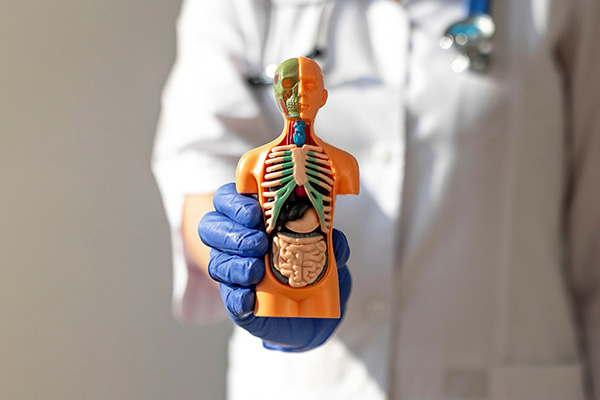Many children silently suffer from persistent urinary problems: bedwetting, painful urination, or unclear congenital issues.
Our children’s health is every parent’s top priority, and when it comes to the urinary system, the uniqueness of growth and development requires specialized medical care different from adult care.
This is where Pediatric Urology comes in, a precise specialty focused on diagnosing and treating congenital and acquired disorders affecting the urinary and reproductive systems in infants, children, and adolescents.
Pediatric urology specializes in diagnosing and treating these conditions and is more than just a surgical specialty; it’s a collaborative care aimed at protecting children’s future health and function.
In advanced centers like Liva Hospital in Turkey, medical expertise is combined with rare technologies to serve this sensitive group.

Why Pediatric Urology?
The fundamental importance of pediatric urology lies in the fact that the urinary and reproductive system in children differs anatomically and functionally from that in adults.
Also, diseases affecting children are often congenital or largely unique in nature. Dealing with these conditions requires a deep understanding of a child’s developing physiology, the ability to apply precise surgical techniques appropriate for the small size of organs, in addition to a comprehensive treatment approach that considers psychological and developmental aspects.
Unlike general urologists, pediatric urologists receive intensive additional training focused exclusively on child care to diagnose and treat complex conditions that may not be familiar to adult urologists.
They are also equipped to deal with children in a gentle and reassuring manner, reducing their anxiety and fear of medical procedures.
Early detection and specialized intervention in pediatric urinary diseases can prevent serious complications, such as chronic kidney failure, and significantly improve the child’s long-term quality of life.
Congenital Urinary System Abnormalities
Congenital abnormalities of the urinary system are among the most common problems dealt with in pediatric urology.
Many of these conditions are often discovered prenatally through routine ultrasounds, allowing for pre-planned postnatal care. The most prominent of these abnormalities include:
- Hydronephrosis: A condition where the kidney becomes swollen due to urine accumulation, often caused by an obstruction in the urinary tract or urine reflux.
It can be mild and resolve on its own, or severe and require surgical intervention to prevent kidney damage. - Vesicoureteral Reflux (VUR): This occurs when urine flows backward from the bladder into the ureters and kidneys, increasing the risk of recurrent urinary tract infections and kidney damage.
The severity of reflux ranges from mild to severe, and it may be treated with prophylactic antibiotics or surgery in more serious cases. - Hypospadias: A congenital defect in males where the urethral opening does not open at the tip of the penis, but on its underside.
Its severity ranges from mild to severe, and it usually requires corrective surgery to reconstruct the urethra and penis. - Posterior Urethral Valves (PUV): A serious condition affecting only males, where abnormal folds of tissue in the urethra obstruct urine flow from the bladder, leading to bladder and kidney damage. It requires early diagnosis and urgent surgical intervention.
- Multicystic Dysplastic Kidney (MCDK): Occurs when the kidney is composed of non-functional cysts instead of normal kidney tissue. Usually, only one kidney is affected, and it often regresses over time, but requires monitoring of the other kidney’s function.
Urination Problems and Incontinence
Urination problems and incontinence are common complaints parents face, and they can be a source of significant concern for them and their children.
These problems are not limited to the physical aspect but can also affect the child’s psychological and social aspects. Pediatric urologists deal with a wide range of urination disorders, including:
- Enuresis: Involuntary urination during sleep after the age at which complete bladder control is expected (usually after 5-6 years). It can be primary (the child has never been dry at night) or secondary (after a period of dryness). Causes include genetic factors, delayed nervous system maturation, overactive bladder, or problems with antidiuretic hormone production.
- Daytime Incontinence: Involuntary urination during the day, which may be associated with an overactive bladder, delayed bladder sensory perception, chronic constipation, or even psychological factors.
- Recurrent Urinary Tract Infections (UTIs): Children who suffer from recurrent UTIs may indicate an underlying problem in the urinary system, such as vesicoureteral reflux or bladder dysfunction.
Accurate diagnosis of these infections and their underlying causes is crucial to prevent kidney damage. - Neurogenic Bladder: A condition that occurs due to nerve damage controlling bladder function (such as in spina bifida cases), leading to the bladder’s inability to store or empty properly. This condition requires complex management to prevent kidney damage.
Genital Organ Diseases in Males and Females
Pediatric urology is not limited to the urinary system only but also includes a wide range of diseases affecting the genital organs in children of both sexes, which require sensitive and specialized care:
- Undescended Testis (Cryptorchidism): A condition where one or both testicles fail to descend into the scrotum before or shortly after birth. Surgical intervention (orchiopexy) is usually necessary to reduce the risk of future infertility or testicular cancer.
- Hydrocele and Inguinal Hernia: A hydrocele is a collection of fluid around the testicle, while an inguinal hernia is a protrusion of part of the intestine or fatty tissue through a weak point in the abdominal wall into the groin or scrotum. Both are common in infants and may require surgery.
- Urethral Stricture: A narrowing of the urethra can occur, obstructing urine flow.
- Vulvar and Vaginal Anomalies: Such as labial adhesions or vaginal septa, which may affect urination function or cause infections.
- Disorders of Sex Development (DSD): These are complex conditions where a child is born with ambiguous sexual characteristics, requiring a careful evaluation by a multidisciplinary team to determine sex and plan care.
- Kidney and Urinary Tract Tumors: Although rare, malignant tumors can affect the urinary and reproductive systems in children, such as Wilms’ Tumor in the kidney. Their diagnosis and treatment require a specialized team including pediatric oncologic surgeons.
Modern Diagnostic and Treatment Methods
Diagnostic and treatment methods in pediatric urology have significantly advanced, providing greater accuracy and safety for young patients.
The most prominent of these methods include:
- Prenatal Ultrasound: Routine ultrasounds during pregnancy have become an invaluable tool for early detection of congenital urinary abnormalities, allowing for pre-planned postnatal care and early intervention if necessary.
- Advanced Imaging Tests: In addition to ultrasound, Computed Tomography (CT) and Magnetic Resonance Imaging (MRI) are used to provide detailed images of urinary organs and evaluate tumors or complex abnormalities.
- Urodynamic Studies: These tests help evaluate bladder function and pressure, and determine the cause of incontinence or urination problems.
- Minimally Invasive Surgery: Laparoscopic surgery and robotic surgery are a revolution in pediatric urology. These techniques allow complex operations to be performed through very small incisions, reducing post-operative pain, shortening recovery time, and minimizing scar size.
For example, at Liva Hospital in Turkey, the latest robotic technologies are employed to perform complex operations with extreme precision, enhancing children’s safety and improving their outcomes. - Non-Surgical Treatment: In many cases, especially with incontinence and recurrent UTIs, non-surgical treatment can be effective, including behavioral therapy, lifestyle changes, and medications.
- Endoscopic Interventions: Delicate endoscopes are used to treat some obstructions or refluxes, or to remove urinary stones.
Challenges and Integrated Care
Dealing with pediatric urinary diseases is not without challenges, both for doctors and families. The main challenges include:
- Early and Accurate Diagnosis: Young children may not be able to express their symptoms clearly, requiring vigilance from parents and doctors.
- Small Organ Size: Performing surgery on small and delicate organs requires exceptional surgical skill and specialized instruments.
- Psychological Aspects: Some urinary problems may affect a child’s self-confidence and social development, requiring psychological support.
- Long-Term Care: Some conditions, especially congenital ones, require continuous follow-up over years to ensure proper growth and development.

Final Word
In conclusion, pediatric urology is a vital and complex specialty, playing an indispensable role in maintaining the health of our children’s urinary and reproductive systems.
From early detection of congenital abnormalities to dealing with urination problems and incontinence, and treating tumors and genital diseases, pediatric urologists contribute to building a healthy future for our upcoming generations.
Continuous advancements in diagnostic and surgical techniques, and the adoption of the latest protocols and technologies (including robotic surgery) by leading hospitals like Liva Hospital in Turkey, give parents hope in providing the best possible care for their children.
Frequently Asked Questions
When should I take my child to see a pediatric urologist?
You should consult a pediatric urologist if your child experiences bedwetting after the age of five, recurrent urinary tract infections, blood in the urine, painful urination, swelling in the genital area, or if a congenital urinary tract anomaly was discovered before or after birth.
Can an undescended testicle be treated without surgery?
In most cases, an undescended testicle requires surgical intervention (orchiopexy) if it doesn’t descend on its own by 6 months to 1 year of age. Hormonal therapy is less effective and rarely used as a sole treatment.
Is nocturnal enuresis always a serious problem?
Not always. Bedwetting is common in young children and is considered a normal part of development. However, if it persists after the age of 5-6 years, or if it starts suddenly after a period of control, you should consult a pediatric urologist to evaluate the cause and rule out any underlying problem.
What is the success rate of pediatric urology surgeries?
The success rate largely depends on the type and severity of the condition. Generally, with modern techniques and specialized expertise, success rates are very high in most corrective procedures, significantly improving the child’s quality of life.
Can urinary problems be detected before a child is born?
Yes, many congenital urinary tract anomalies, such as severe hydronephrosis or urinary tract obstruction, can be detected through routine ultrasound examinations during pregnancy.
Should children with recurrent urinary tract infections undergo additional tests?
Yes, additional tests such as kidney and bladder ultrasounds, or voiding cystourethrogram (VCUG) are often recommended to identify the underlying cause of recurrent infections, such as vesicoureteral reflux.


